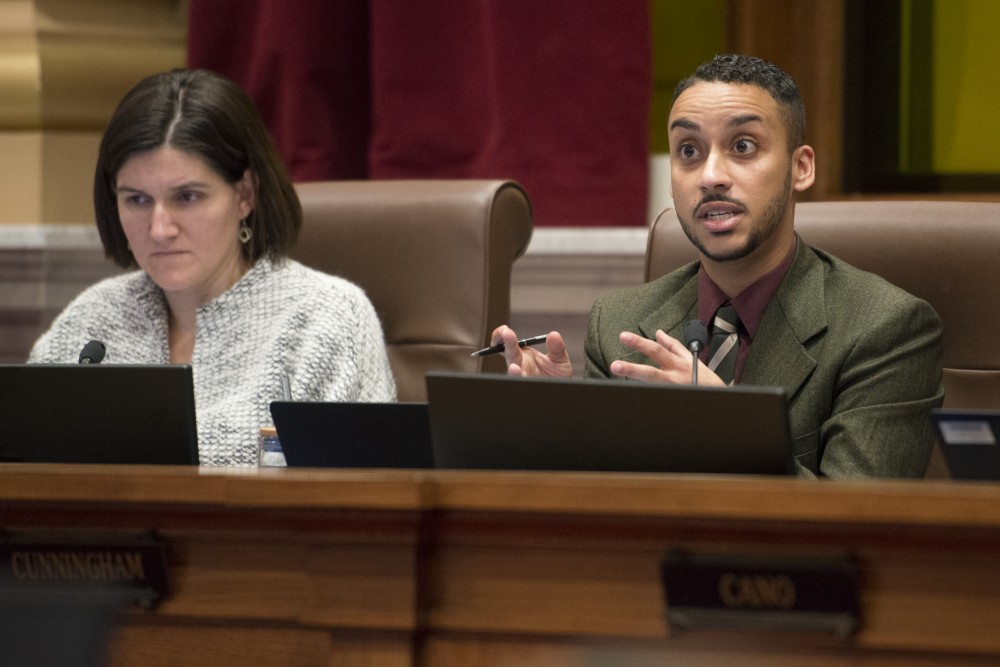A Minneapolis City Council committee heard from law enforcement and a local nonprofit on Thursday about plans to combat sex trafficking during Super Bowl LII.
The speakers were part of a briefing by the city attorney that outlined how the City will prevent and disrupt sex trafficking in the 10 days leading up to the Super Bowl.
“We know sex trafficking occurs. It occurs everyday. It’s going to occur well after the Super Bowl has come and gone,” said City Attorney Susan Segal during the meeting of the Public Safety and Emergency Management Committee. “But we are improving our response. We are coordinating our services … and working towards prevention.”
Minneapolis Police Department Sergeant Grant Snyder works on investigating human trafficking and sex trafficking crimes. Snyder said at the meeting that MPD has worked with 23 different law enforcement agencies over the past four years to build its initiative to thwart sex trafficking.
The Super Bowl often brings heightened sex trafficking activity due to the influx of people visiting the city, Snyder said.
“We know that there’s going to be a million-plus people coming into the Twin Cities. Unfortunately, some of those people, and it has nothing to do with the Super Bowl, are going to engage in the purchase, or attempt to purchase, commercial sex,” he said.
MPD is working to protect victims by interrupting the sex trafficking marketplace and decreasing demand, Snyder said.
One way MPD hopes to decrease demand is through its participation in the “Guardian Angel” operation, which deploys undercover officers who target individuals looking to buy commercial sex online. Snyder said MPD will have three Guardian Angel teams patrolling the web prior to the Super Bowl.
MPD expects much of the trafficking during the Super Bowl to occur in hotels, he said, where the victims will be brought.
“That’s why we’re building this relationship with the hospitality industry because that’s actually quite easy to detect,” Snyder said.
Beth Holger-Ambrose, executive director of The Link, a nonprofit organization in Minneapolis that supports youth victimized by crime, also attended the meeting. The Link is one of 12 organizations forming the Super Bowl Anti-Trafficking Response Committee.
The committee will focus on street outreach and providing emergency shelter for victims of sex trafficking. Holger-Ambrose said it’s important that the committee seeks feedback from sex trafficking victims to develop responses during the event.
“It’s grounded in what youth and adult survivors want and what works for them,” she said.
Ward 3 Minneapolis City Council Member Steve Fletcher, vice-chair of the Public Safety and Emergency Management Committee, said the City’s strategy will help deter sex trafficking through awareness.
“People who are coming to Minneapolis and are thinking about illegally buying sex know there’s a really good chance they’re talking to law enforcement, that we’ve infiltrated and embedded ourselves in the networks that are trying to sell sex,” he said.








